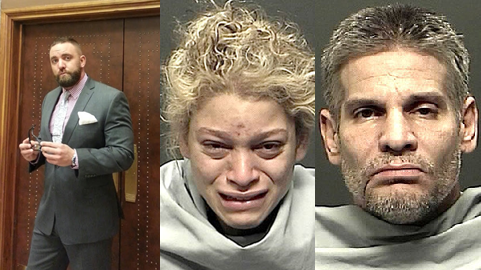Following the demise of proposed Rule 8.4(g) last month—a well-intentioned but dangerous and constitutionally infirm speech code—two additional rule changes have been proposed to the Tennessee Supreme Court for consideration. The court is currently soliciting comments on both proposals.
The first proposal is a petition to amend Rule 25, governing the Tennessee Lawyers’ Fund for Client Protection. The proposed changes are detailed here. I have a problem with one of the proposals, which caps attorney compensation at the randomly low amount of $500.00. Such a rule would significantly interfere with what is typically a strongly-enforced right to contract. It would also have no result other than ensuring that clients can’t get legal representation to handle qualifying fraud claims. Simply stated: lectures on lawyers’ duties aside, no lawyer will work a complex case with a potential value of up to $250,000.00 for just $500 plus expenses, and there are other matters that are significantly more worthy of pro bono assistance. My concerns about this portion of the proposed change are detailed in this Twitter thread, and the text of the change at issue is as follows:
18.01. No lawyer shall charge or accept compensation for prosecuting a claim on behalf of a claimant unless approved by the Board (a) on a contingency basis or (b) in excess of a flat fee of $500.00 plus reimbursement of expenses. Lawyers owe a duty to the public to assist individuals wronged by members of the profession and may count hours spent assisting a claimant in the prosecution of a claim as pro bono hours if conducted without receiving a fee.
https://twitter.com/Scot_Blog/status/994589523223941121
The second proposed change is to amend Rule 13 to adjust the hourly rates and per-case caps for appointed indigent criminal defense work. $9.7 million in additional and much-needed funding was recently appropriated for indigent defense in Tennessee, which is currently in a state of crisis. The proposed changes are available here, and the TBA is soliciting input here. The changes, if adopted, would modestly increase case caps and compensate both in-court and out-of-court work at $50/hour.
Compensating in-court and out-of-court work at the same rate is a marked and arguably legally mandated improvement. However, as a whole, the changes are not nearly significant enough to address the catastrophic problems and perverse incentives involved in Tennessee’s indigent defense system. In particular, retaining case caps ensures a serious and rapid conflict of interest in appointed cases, because after attorneys spend between 10-60 hours on a defendant’s representation (depending on the type of case), the attorney stops getting paid. For instance, under even the improved case caps, a lawyer defending a client charged with First Degree murder will only be paid for the first 60 hours of work. Further, even if the case at issue is deemed especially “complex or extended”—a characterization that should apply to every serious felony case—a lawyer will only be compensated for a maximum of 120 hours of work no matter how long the case lasts. For cases that can often take years to resolve, the economic pressure to push a client to plead guilty after the cap has been hit is enormous.
For anyone interested in providing commentary on the proposed rules, written comments may be emailed to [email protected] or mailed to:
James Hivner, Clerk
Tennessee Appellate Courts
100 Supreme Court Building
401 7th Avenue North
Nashville, TN 37219-1407
Like ScotBlog? Join our email list or contact us here, or follow along on Twitter @Scot_Blog and facebook at https://www.facebook.com/scotblog.org
